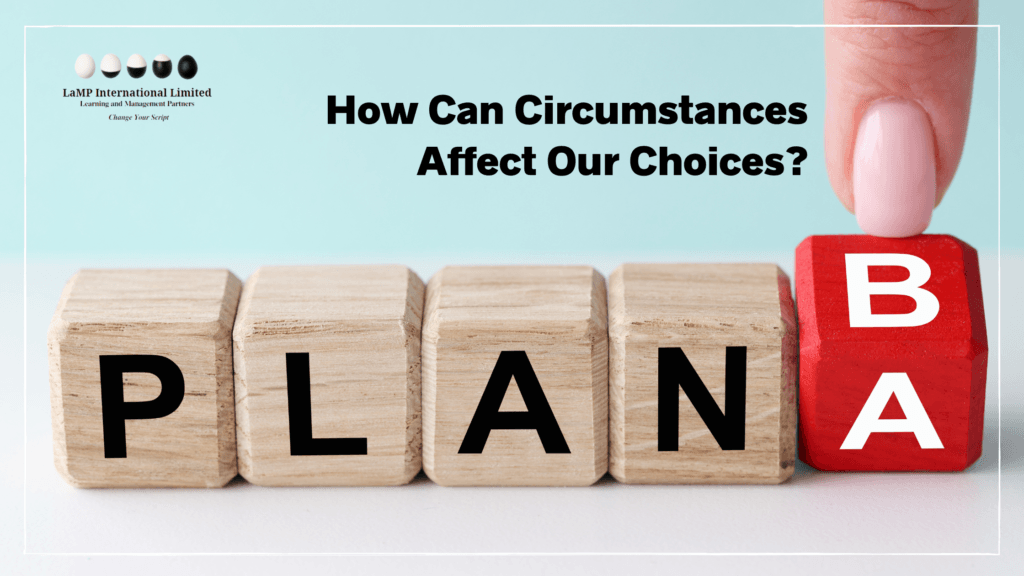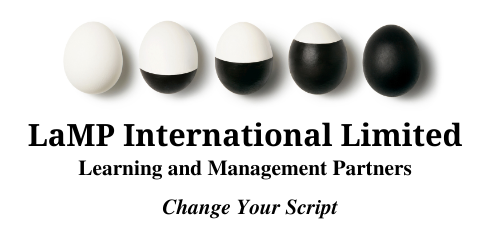
If you are curious about the topic: “How can circumstances affect our choices?” then, read on.
We all face different circumstances in our lives and circumstances can affect our choices. Those circumstances may vary depending on many different things. The place where we were born. Who our parents are. The school that we attended. Our diversity. Our skin colour. Our height. Our goals and our ambitions. As we face each circumstance, we consciously or subconsciously make choices based on them.
Those choices then determine an outcome – good, bad or indifferent.
The circumstances that you find yourself in may also present some predetermined choices for you. These, however, do not have to be your only or ultimate choices. I am a believer that the power is in your hands to Change Your Script.
Here are answers to 5 common questions on the topic.
1. What Affects Your Choices In Life?
If I had to choose a word for this week, it would be “circumstances“. Of course, I am referring to adults here. Children are another category.
Our circumstances differ. There is no issue there. The heart of the discussion about circumstances lies in how we allow them to influence the choices that we make. This is often the reason (or excuse) that many people provide when asked:
“What got you to this point?“
The responses are usually directed to things like their:
- Status
- Education
- Family
- Place of origin
- Social network
- Gender
- Access to money
- Age
- Relationships
- Place of Residence
- Weather conditions
These are all circumstances and not to be confused with situations.
In the simplest way, circumstances are things that are largely outside of our direct control. Even though we cannot control many of our circumstances, we still allow them to impact the choices and decisions that we make.
But should we lean on circumstances so much when we make choices? Should we give our circumstances so much power over us and our lives?
2. Do All Choices Have Consequences?
Yes, all choices have consequences. Even when you choose to do nothing, there will be a consequence. You will be allowing your circumstances to affect your choices and determine your outcome.
In November 2021, I facilitated an intervention with a high-performing team in the financial industry in the USA. The team is led by a driven CEO who is clear on where he wants to take this organisation and the results he wants to deliver to his Board.
The position of COO opened up and he personally reached out to 3 of the members of this elite group to apply. Two persons applied. One person chose not to.
When the CEO contacted the team member who did not apply to ask him why he responded by saying that he thought he would have to relocate if he got the position. He based his choice (and decision) on his circumstance.
As it turned out, this was the team member the CEO ranked as his Preferred Candidate for the COO position. It was also the team member’s “dream job“.
THE LESSONS:
- Do not assume before making a choice.
- Do not allow your circumstances to limit your choices.
3. How Do Consequences Create Circumstances?
Consequences are the results of decisions and actions that you take. They are what happens when you decide (or don’t) to DO something.
Remember that I said NOT doing or taking action is also an action or activity. That means there will also be a consequence, even if you sit still or do nothing.
Let me give a graphic example.
You are sitting in the park on a comfortable bench. There is no covering. You are enjoying the gentle breeze and the views of the sky, clouds and mountains.
Suddenly, it starts to drizzle. You make a decision to take no action. You sit there while the drizzle turns into rain and falls heavier.
You get wet. That is the consequence of your inaction.
You do not get up.
The rain gets heavier.
You get soaked.
As the rain gets heavier, you get up and decide to try to get a taxi to take you home. But you are drenched. No vehicle stops.
You have just created a circumstance for yourself. You cannot make anyone stop. Yet, if you had made a decision to get a vehicle to take you home BEFORE it started to rain, the consequences of your action would still be within your sphere of control.
The more you assert yourself, the more you are able to control and manage your consequences and circumstances.
4. Why Is It Important To Make The Right Choices In Life?
The previous example, though simple, should highlight the importance of making the right, timely choices. Those two factors, time and decision-making are tightly connected.
It could mean the difference between being efficient and effective.
I could be an efficient Typist. However, If I am a front-line Receptionist who is an efficient Typist and a Customer walks in and I ignore him to continue typing my document, I am being ineffective as a Service Provider.
The Customer may get tired of having to wait. He may rise his voice, complain to someone else or, even worse, he may leave and not return.
The business will be lost.
Decision-making is a critical life skill and one that you should invest time in to understand and manage effectively. Your decisions will have consequences and will directly impact the circumstances that your face.
5. How Do We Know To Make Good Decisions?
Now that you know how circumstances can affect our choices, how do we know to make good decisions?
Straight answer: We don’t. Not immediately and not on every occasion.
Making good decisions is like building muscle in your body. It takes practice and you must be consistent. The more you exercise your decision-making muscles, the more effective and assertive you will become.
Some decisions are easier than others, like moving out of the rain into somewhere dry before you get soaked. Others such as who to marry can be more complicated and less immediate.
Decisions like these will rely on your experiences and intuition – gut instinct, as we say. You should also be clear on your personal goals and objectives.
If you want to save money, you should be making fewer decisions to spend your money on things that you do not want. Decreasing your needs will also help you with that objective and make it easier to say “no“.
Closing Thoughts . . .
I have first-hand experience with how circumstances can affect our choices.
As a child, we were not rich and the little that we did have went a long way. My grandmother always said that our circumstances did not determine our future. She encouraged us to make choices that would move us closer to success.
We chose education rather than playing endlessly and aimlessly.
We learned life skills – cooking, sewing, cleaning, and a trade. These skills would come in handy as we worked to improve our gifted circumstances.
We learned about business. My grandmother was a market trader and she taught us all about the value of money and how to earn a living. Most of my aunts, uncles and cousins became successful businessmen and women, all around the world.
We learned to be courageous. So many times, we had to make decisions that took us away from the crowd and the norms. It was tough at the time but, as I write and reflect, I value highly those decisions.
They helped us change our circumstances.
You can Change Your Script too.
The Author
Cassandra is a Management Consultant, Internationally qualified Facilitator, Coach, Strategist and Behaviour Change Agent. She enjoys travelling, exploring cultures and learning about historical and social networks and dynamics.
Her driving force is the education and development of her tween daughter. The roots of her inspiration to diversify her niche markets and the motivation to expand and scale her business investments rest firmly in this relationship.
This is the reason for creating her legacy.

